
The Dish’s Weekly Biotechnology News Wrap Up – August 25, 2023
This week’s headlines include: US govt awards $1.4 bln for development of new COVID therapies, vaccines, Fulcrum’s sickle cell disease program is back in business after FDA lifts 6-month hold, NICE gives green light for MSD’s Keytruda, Moderna, CARsgen Join Forces Combining mRNA Cancer Vaccine with CAR T, GSK stays a step ahead in RSV vaccine battle as Arexvy becomes available at US pharmacies, UK biotech founded by Nobel laureate rides the SPAC track out of the graveyard, and COVID-19 boosts risks of health problems 2 years later, giant study of veterans says.
Podcasts:
Check out our podcast channel. We have over 100 great podcasts covering drug discovery, stem cell culture, upstream and downstream biomanufacturing and more! Click below to download from iTunes or Google play:
![]()
![]()
In Case You Missed It, Recent Articles on Cell Culture Dish and Downstream Column:
![]()
Meeting the Demands of Cell and Gene Therapy Manufacturing with Immunoassays and CYTENA’s C.WASH
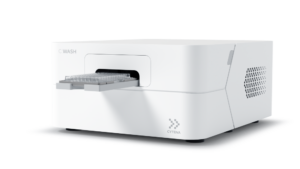 Cell and gene therapy holds immense potential to revolutionize the field of medicine by addressing the root genetic causes of diseases or empowering cells to fight against them. This approach has already achieved remarkable successes in healthcare, including the treatment of rare eye diseases, sickle cell disease, and various cancers. One of the key tools used in cell and gene therapy are viral vectors, which are specialized vehicles that transport genetic material to target cells. Viral vectors have a wide range of applications, from gene therapy to vaccine development. However, before they can be safely used in humans, they must go through a rigorous purification process to eliminate impurities and ensure the safety and efficacy of the final product…
Cell and gene therapy holds immense potential to revolutionize the field of medicine by addressing the root genetic causes of diseases or empowering cells to fight against them. This approach has already achieved remarkable successes in healthcare, including the treatment of rare eye diseases, sickle cell disease, and various cancers. One of the key tools used in cell and gene therapy are viral vectors, which are specialized vehicles that transport genetic material to target cells. Viral vectors have a wide range of applications, from gene therapy to vaccine development. However, before they can be safely used in humans, they must go through a rigorous purification process to eliminate impurities and ensure the safety and efficacy of the final product…Celebrating 10+ Years of Innovation: Thermo Fisher Scientific’s Gibco Expi Protein Expression Systems
We had the privilege of sitting down with Sapna Padmanabhan, Sr. Global Market Development Manager at Thermo Fisher 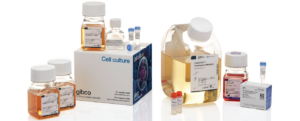 Scientific to talk about the Gibco™ Expi Protein Expression Systems, which have revolutionized protein production for over a decade. These optimized transient expression systems provide a high-performing alternative to conventional stable transfection methods. They enable high-yield, consistent protein production for many downstream applications, driving significant advancements in various research areas, such as biologics development, drug discovery, vaccine development, immunology, gene therapy, immunotherapy, and infectious disease research. During our Q&A session, we will explore the history and significance of these systems, not only in driving innovation in the protein expression space but also in shaping the development of new products at Thermo Fisher Scientific.
Scientific to talk about the Gibco™ Expi Protein Expression Systems, which have revolutionized protein production for over a decade. These optimized transient expression systems provide a high-performing alternative to conventional stable transfection methods. They enable high-yield, consistent protein production for many downstream applications, driving significant advancements in various research areas, such as biologics development, drug discovery, vaccine development, immunology, gene therapy, immunotherapy, and infectious disease research. During our Q&A session, we will explore the history and significance of these systems, not only in driving innovation in the protein expression space but also in shaping the development of new products at Thermo Fisher Scientific.
Key Considerations and Effective Strategies for Oligonucleotide Manufacturing Scale-Up
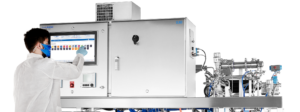 Oligonucleotide therapeutics have emerged as a powerful tool for targeting molecules that are beyond the reach of conventional drugs. With notable progress in nuclei acid chemistry and delivery mechanisms, these therapeutics are revolutionizing the treatment of cancers, genetic disorders and beyond. With a growing number of approved oligonucleotide therapeutics in the US, and many promising candidates in pipeline, oligonucleotides manufacturing will need to shift towards larger-scale processes to keep pace with demand. However, upscaling from benchtop processes presents significant challenges that must be addressed to ensure success…
Oligonucleotide therapeutics have emerged as a powerful tool for targeting molecules that are beyond the reach of conventional drugs. With notable progress in nuclei acid chemistry and delivery mechanisms, these therapeutics are revolutionizing the treatment of cancers, genetic disorders and beyond. With a growing number of approved oligonucleotide therapeutics in the US, and many promising candidates in pipeline, oligonucleotides manufacturing will need to shift towards larger-scale processes to keep pace with demand. However, upscaling from benchtop processes presents significant challenges that must be addressed to ensure success…
Demystifying Cord Blood: Answers to Common Questions from Cell Therapy Developers
Allogeneic cell and gene therapy developers considering cord blood as the source material for their therapy recognize the  advantages it holds—from its naïve state to being cryopreserved and readily available. However, developers often have questions for our team at Be The Match BioTherapies. This article covers common questions about factors such as licensure, characterization, and efficient access to the domestic cord blood supply…
advantages it holds—from its naïve state to being cryopreserved and readily available. However, developers often have questions for our team at Be The Match BioTherapies. This article covers common questions about factors such as licensure, characterization, and efficient access to the domestic cord blood supply…
Production of MSC-Derived Exosomes Using Bioreactor Systems and Controllers
 Mesenchymal stem cells (MSCs) have been at the epicenter of regenerative medicine since their identification in the 1970s, due to their ability to differentiate into various mesoderm-derived cell types, their immunomodulatory function through paracrine factors (secretome), and ability to home to sites of tissue injury. MSC-based cell therapies are promising for the treatment of a variety of diseases and conditions like wound healing, osteoarthritis, cardiovascular disease, and neurological disorders; however, problems associated with inadequate cell localization and low cell survival rate within the target tissue make the MSC challenging. Because many of the therapeutic effects of MSCs are mediated by the secretion of soluble paracrine factors, researchers are interested in the therapeutic potential of exosomes, which are the central mediators responsible for paracrine functions…
Mesenchymal stem cells (MSCs) have been at the epicenter of regenerative medicine since their identification in the 1970s, due to their ability to differentiate into various mesoderm-derived cell types, their immunomodulatory function through paracrine factors (secretome), and ability to home to sites of tissue injury. MSC-based cell therapies are promising for the treatment of a variety of diseases and conditions like wound healing, osteoarthritis, cardiovascular disease, and neurological disorders; however, problems associated with inadequate cell localization and low cell survival rate within the target tissue make the MSC challenging. Because many of the therapeutic effects of MSCs are mediated by the secretion of soluble paracrine factors, researchers are interested in the therapeutic potential of exosomes, which are the central mediators responsible for paracrine functions…
![]()
Cytiva MabSelect™ VL protein L affinity resin
 Monoclonal antibodies (mAbs) represent a rapidly growing class of therapeutics designed to target and bind to specific proteins to treat a variety of diseases, including cancer, autoimmune disorders, and infectious diseases. They can be custom engineered to have specific properties that suit specific therapeutic needs, such as increased potency, longer half-life in the body, or reduced immunogenicity. As the field continues to advance, the molecular diversity of mAbs is increasing rapidly, where non-traditional mAb formats such as bispecific antibodies, fragments, and antibody-drug conjugates now account for up to a quarter of projects in the clinical pipeline. Conventional purification protocols relying on protein A may not always be suitable for these novel antibody variants since they may require new ligands or base matrices for effective capture of target molecule and separation of impurities. Therefore, the development of chromatography resins that can accommodate these variants is crucial for manufacturing and process development in the evolving landscape of mAb therapeutics…
Monoclonal antibodies (mAbs) represent a rapidly growing class of therapeutics designed to target and bind to specific proteins to treat a variety of diseases, including cancer, autoimmune disorders, and infectious diseases. They can be custom engineered to have specific properties that suit specific therapeutic needs, such as increased potency, longer half-life in the body, or reduced immunogenicity. As the field continues to advance, the molecular diversity of mAbs is increasing rapidly, where non-traditional mAb formats such as bispecific antibodies, fragments, and antibody-drug conjugates now account for up to a quarter of projects in the clinical pipeline. Conventional purification protocols relying on protein A may not always be suitable for these novel antibody variants since they may require new ligands or base matrices for effective capture of target molecule and separation of impurities. Therefore, the development of chromatography resins that can accommodate these variants is crucial for manufacturing and process development in the evolving landscape of mAb therapeutics…
Cool Tool – GoSilico™ Chromatography Modeling Software from Cytiva
Biopharmaceutical manufacturers are continuously striving to find efficiencies and make improvements across downstream  processing steps to improve product quality, reduce costs, and accelerate the development of safe and effective biopharmaceuticals. Chromatography plays a critical role in the purification of biopharmaceutical products. However, developing chromatography processes can be a challenging task because it involves balancing factors such as selectivity, yield, and productivity while maintaining the purity and quality of the final product. Strategies for process development are evolving and include design of experiments (DoE) and high throughput process development (HTPD). These strategies accelerate process development and increase process understanding, but they require multiple experiments and extensive data analysis, which can be time consuming and resource intensive…
processing steps to improve product quality, reduce costs, and accelerate the development of safe and effective biopharmaceuticals. Chromatography plays a critical role in the purification of biopharmaceutical products. However, developing chromatography processes can be a challenging task because it involves balancing factors such as selectivity, yield, and productivity while maintaining the purity and quality of the final product. Strategies for process development are evolving and include design of experiments (DoE) and high throughput process development (HTPD). These strategies accelerate process development and increase process understanding, but they require multiple experiments and extensive data analysis, which can be time consuming and resource intensive…
Simplified, Closed Slurry Preparation to Manage a Wide Range of Chromatography Media for DAC LC Columns
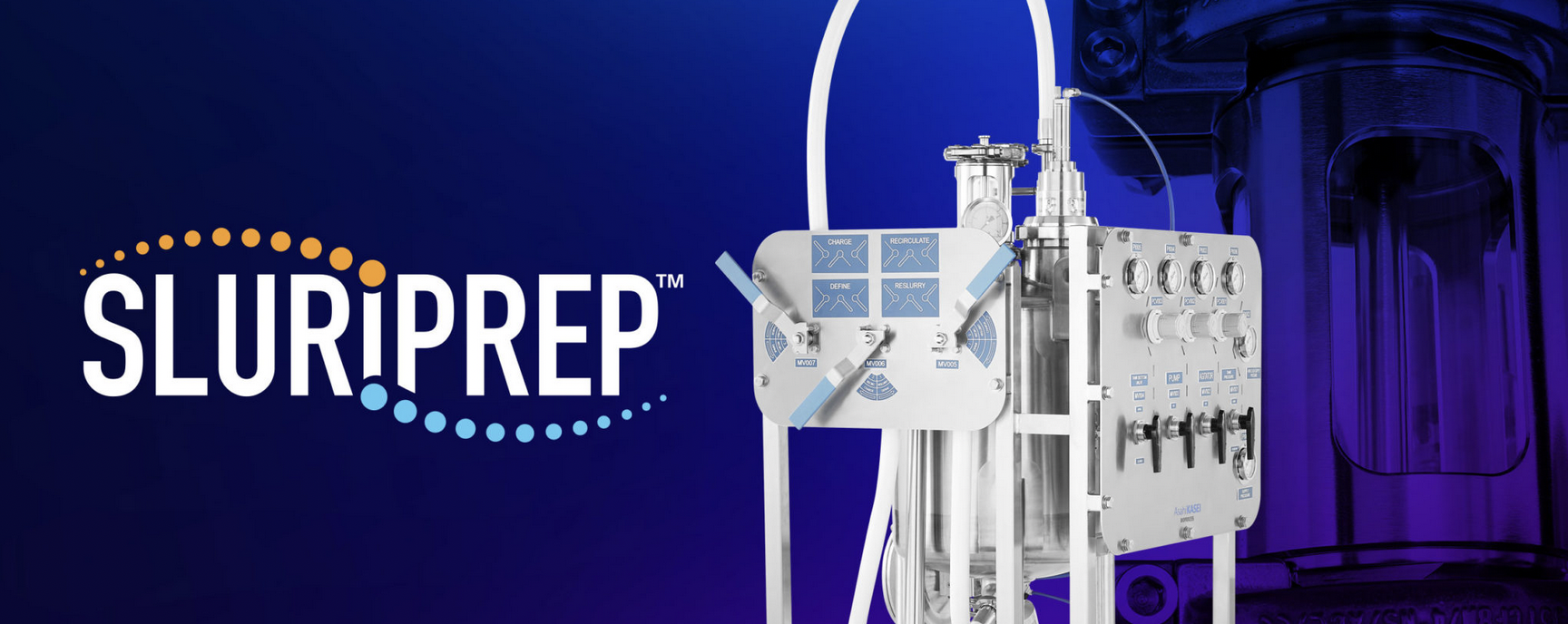
Slurry preparation is a critical step in preparing a well-packed column and achieving a successful bioprocess purification. However, this step can be challenging as different therapeutics require different chromatography media to achieve effective chromatographic separation. For instance, therapeutics in the 5 to 15 kDa range, such as insulins and oligonucleotides utilize rigid and spherical chromatography, which can be more difficult to work with. These media are based on a wide range of matrices including silica gel, polystyrene-divinylbenzene, polymethacrylate, agarose and hydroxyapatite, each with its own packing properties. As these processes are scaled up to larger column diameters, packing media becomes more complex and more crucial for success…
Advanced Single Use Scalable Chromatography System – Delivers 2 Flow Path Sizes in 1 Skid
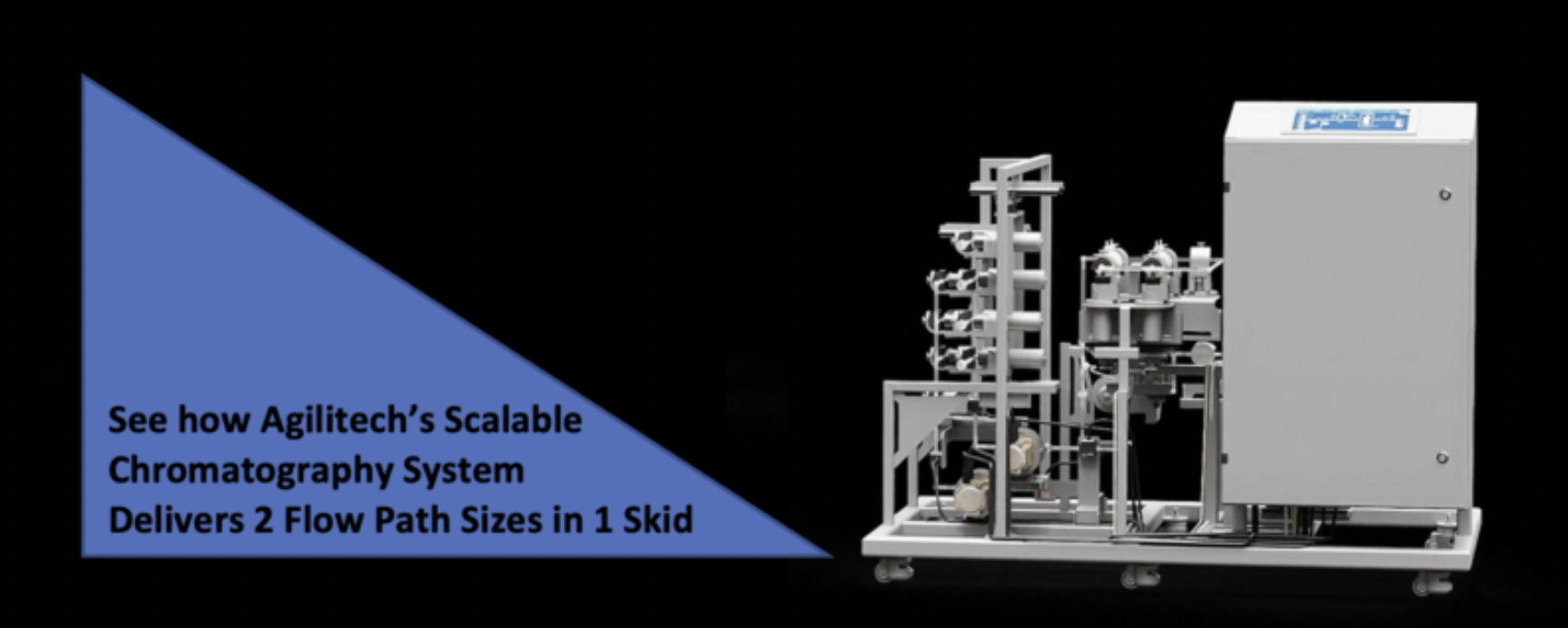
The need for flexibility in bioprocessing is well documented. Changes in demand, multi-product facilities, and technology advancements are just some of the reasons bioprocessing volumes may increase or decrease. Since, it is not time or cost effective to procure, configure, and qualify new equipment to meet changing requirements, equipment that supports process flexibility is advantageous…
New Technology Solutions for Lentiviral Vector Clarification
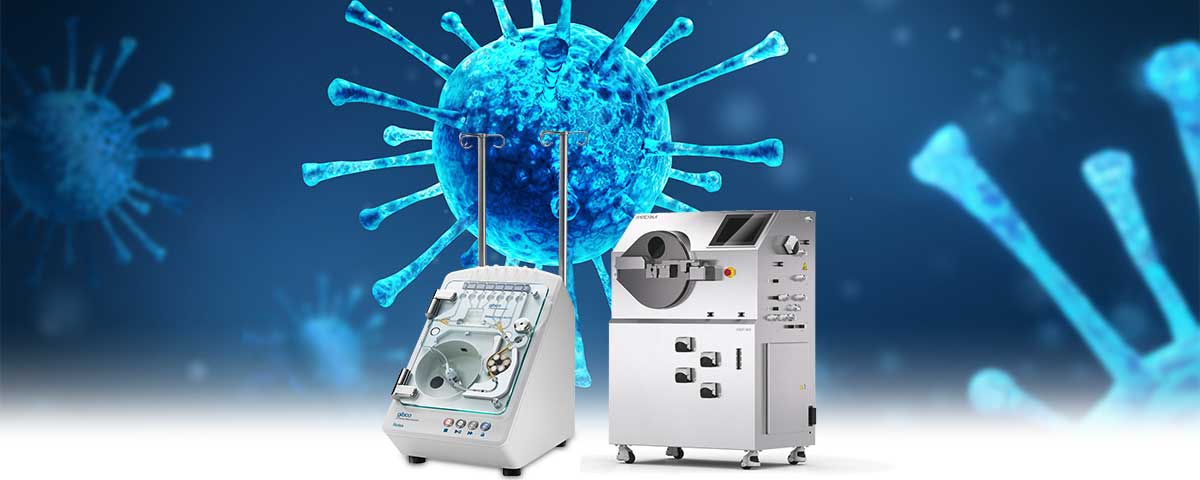 The growth of the cell and gene therapy sector, and the growing number of gene and gene-modified cell therapies entering the market has translated into an increased global demand for lentiviral vectors (LVs) as a gene delivery tool. There are currently two FDA approved LV-based cell and gene therapy products—Kymriah® (Novartis) and ZYNTHEGLO® (bluebird bio), and according to the Alliance for Regenerative Medicine, an estimated 48% of the ongoing cell and gene therapy clinical trials use lentiviral vectors, with a significant number in late-stage evaluation. The strong pipeline of LV-mediated gene and CAR-T cell therapy products headed towards market approval means the development of efficient LV vector purification methods to improve yield and recovery is needed to meet the growing demand while also driving down the cost of production…
The growth of the cell and gene therapy sector, and the growing number of gene and gene-modified cell therapies entering the market has translated into an increased global demand for lentiviral vectors (LVs) as a gene delivery tool. There are currently two FDA approved LV-based cell and gene therapy products—Kymriah® (Novartis) and ZYNTHEGLO® (bluebird bio), and according to the Alliance for Regenerative Medicine, an estimated 48% of the ongoing cell and gene therapy clinical trials use lentiviral vectors, with a significant number in late-stage evaluation. The strong pipeline of LV-mediated gene and CAR-T cell therapy products headed towards market approval means the development of efficient LV vector purification methods to improve yield and recovery is needed to meet the growing demand while also driving down the cost of production…
Future Proofing Downstream Bioprocess Operations
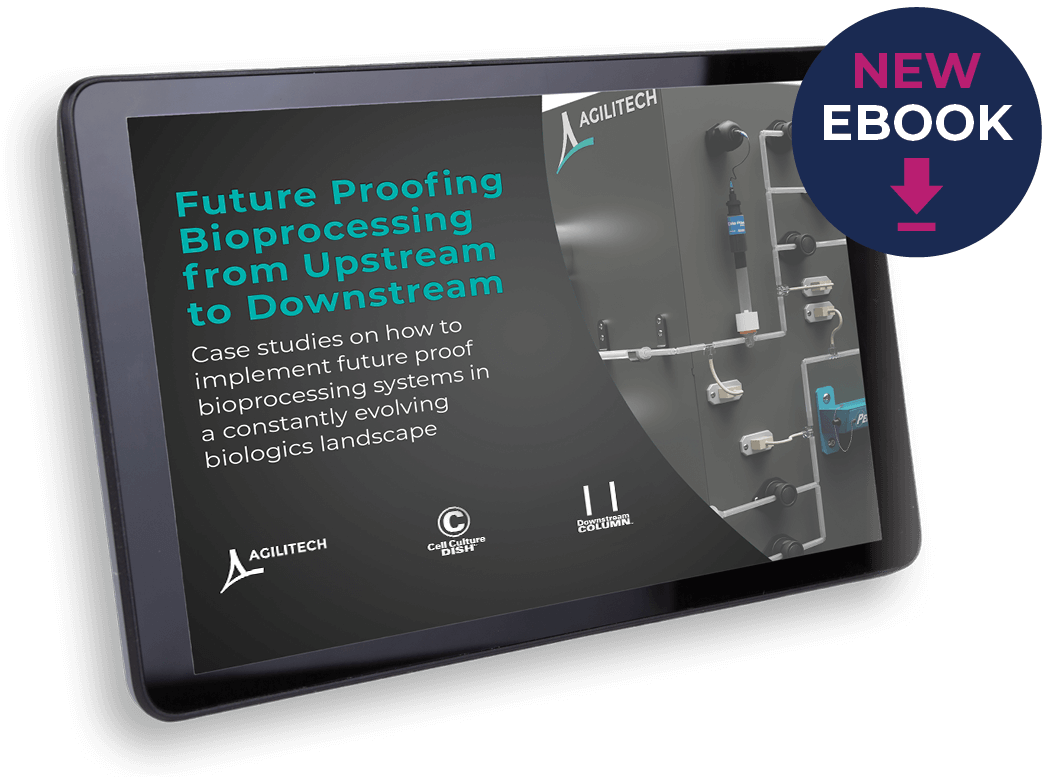
Historically, downstream bioprocesses have been simpler than upstream bioprocesses. They were more manual and Protein A columns permitted a simple and effective purification solution for monoclonal antibodies and protein-based therapeutics. More recently, upstream bioprocesses have undergone significant improvements in process and subsequently yield. These improvements in upstream created bottlenecks in downstream as the systems in place were not prepared to adjust to changes in both the starting material from upstream and yield. As a result, downstream bioprocesses have had to evolve to meet the needs of these new challenges by incorporating technology advancements such as single-use technologies, improved chromatography solutions, continuous processing, advanced buffer management systems, increased automation, and many others…
eLearning Opportunity:
DESIGN OF EXPERIMENTS (DOE) FOR CHROMATOGRAPHY – TakE FREE E-LEARNING COURSES
Improve process development efficiency compared to studying one factor at a time (OFAT)
A Design of Experiments (DoE) model can be used to understand how experimental parameters affect outcomes. In 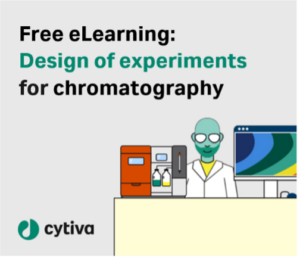 chromatography process development, a DoE approach can greatly improve the efficiency in screening for suitable experimental conditions, in optimizing a process, or in robustness testing.
chromatography process development, a DoE approach can greatly improve the efficiency in screening for suitable experimental conditions, in optimizing a process, or in robustness testing.
What is DoE?
Design of experiments (DoE) is a technique for planning experiments and analyzing the information obtained. The technique allows you to use a minimum number of experiments. You systematically vary several experimental parameters simultaneously to obtain sufficient information to create a mathematical model of the chromatography process.
Take one of the DoE eLearning courses from Cytiva
Explore the basic concepts of DoE, learn about the typical workflow, and get guidance on graph interpretation in the first course. Then see how to perform a DoE screening with UNICORN™ software to optimize conditions for high yield and protein purity.
Headlines:
“US govt awards $1.4 bln for development of new COVID therapies, vaccines,” Reuters
The U.S. government said on Tuesday it had awarded $1.4 billion for the development of new therapies and vaccines against COVID-19, including a $326 million contract with Regeneron Pharmaceuticals or a next-generation antibody therapy for prevention of infections…
“Fulcrum’s sickle cell disease program is back in business after FDA lifts 6-month hold,” Fierce Biotech
After a six-month wait, Fulcrum Therapeutics’ sickle cell disease (SCD) plans are back on track after the FDA lifted a hold on the biotech’s candidate. The regulator instigated the full clinical hold on the therapy, dubbed FDX-6058, back in February. Details were sparse at the time, with Fulcrum only able to say that the hold was initiated due to previously reported preclinical data…
“NICE gives green light for MSD’s Keytruda,” PharmaTimes
The decision is the first verdict based on data from a wider immunotherapy ‘basket’ study. MSD has revealed that the National Institute for Health and Care Excellence (NICE) has recommended the use of Keytruda. Also known as pembrolizumab, the therapy treats tumours with microsatellite instability-high (MSI-H) or mismatch repair deficiency (dMMR). It also involves adults with advanced or recurrent endometrial cancer that has progressed during or after platinum-based therapy, as well as certain patients with gastric, small intestine or biliary cancer…
“Moderna, CARsgen Join Forces Combining mRNA Cancer Vaccine with CAR T,” BioSpace
Moderna and China’s CARsgen Therapeutics are collaborating to combine their respective mRNA therapeutic cancer vaccine with a solid tumor CAR T cell therapy, the Chinese biotech announced on Monday. Under the agreement, the companies are looking to evaluate Moderna’s investigational Claudin18.2 mRNA cancer vaccine in combination with CARsgen’s Claudin18.2 CAR T cell candidate (CT041) in preclinical and Phase I studies…
“GSK stays a step ahead in RSV vaccine battle as Arexvy becomes available at US pharmacies,” FiercePharma
As companies have flocked to compete in the new respiratory syncytial virus (RSV) vaccine market, GSK has had the best timing. In May, the U.K. company was first to secure FDA approval for its shot Arexvy for adults 60 and older, beating out rivals from Pfizer and Moderna. And now—well in advance of the fall and winter RSV season—Arexvy is available in major U.S. retail pharmacies, GSK said Thursday…
“UK biotech founded by Nobel laureate rides the SPAC track out of the graveyard,” FierceBiotech
Last we heard from U.K. cell therapy biotech Celixir in July 2020, the COVID-19 pandemic had stymied an ongoing clinical trial of its cardio cell therapy and the hope was that recruitment could continue in the third quarter of 2020…
“COVID-19 boosts risks of health problems 2 years later, giant study of veterans says,” Science
Three-and-a-half years since SARS-CoV-2 spread around the world, scientists are still documenting the virus’ myriad effects on human health. What’s clear already is that those effects can continue long beyond the original infection. Now, researchers have attempted to quantify this long-term harm using a massive database of U.S. veterans’ health records. They found a dramatically increased risk of dozens of conditions including heart failure and fatigue, sometimes years postinfection. Overall, the team estimates, COVID-19’s public health impact is more than 50% greater than that of cancer or heart disease…